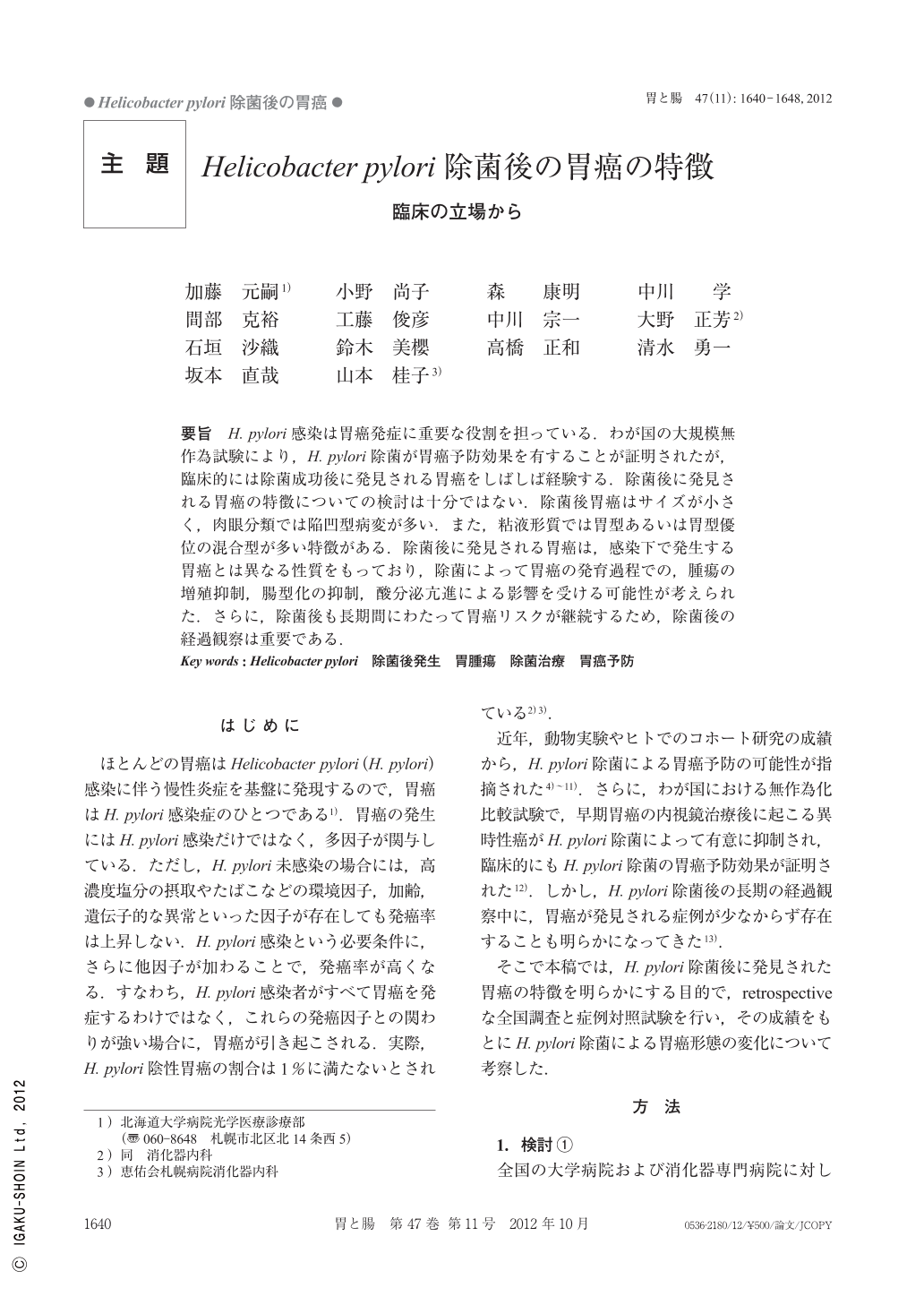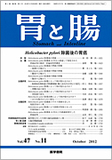Japanese
English
- 有料閲覧
- Abstract 文献概要
- 1ページ目 Look Inside
- 参考文献 Reference
- サイト内被引用 Cited by
要旨 H. pylori感染は胃癌発症に重要な役割を担っている.わが国の大規模無作為試験により,H. pylori除菌が胃癌予防効果を有することが証明されたが,臨床的には除菌成功後に発見される胃癌をしばしば経験する.除菌後に発見される胃癌の特徴についての検討は十分ではない.除菌後胃癌はサイズが小さく,肉眼分類では陥凹型病変が多い.また,粘液形質では胃型あるいは胃型優位の混合型が多い特徴がある.除菌後に発見される胃癌は,感染下で発生する胃癌とは異なる性質をもっており,除菌によって胃癌の発育過程での,腫瘍の増殖抑制,腸型化の抑制,酸分泌亢進による影響を受ける可能性が考えられた.さらに,除菌後も長期間にわたって胃癌リスクが継続するため,除菌後の経過観察は重要である.
Helicobacter pylori(H. pylori)infection plays an important role in gastric carcinogenesis. Japanese randomized controlled study has proved that H. pylori eradication has a preventive effect against the development of gastric cancer. However, gastric cancer is sometimes detected after successful eradication of H. pylori. There is a lack of study about gastric cancers detected after H. pylori eradication. These cancers are reported to have a tendency to be smaller in size and, morphologically, with higher frequency in the depressive type. Also, immunohistologically. there were a lot of complete gastric type or gastric predominant mixed type cancers. The clinicopathological characteristics of gastric cancers detected after H. pylori eradication were different from those of gastric cancers in patients with H. pylori infection. H. pylori eradication is thought to inhibit tumor growth, suppress intestinalization, and increase the effect of acid output during the development of gastric cancer. Furthermore, since the risk of gastric cancer incidence continues after H. pylori eradication, follow-up study is important.

Copyright © 2012, Igaku-Shoin Ltd. All rights reserved.


